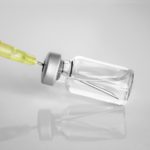Cardiovascular Disease and Gout

The prevalence of cardiovascular disease continues to rise and is among the leading cause of mortality in the world. Inflammatory conditions such as Rheumatoid Arthritis and Gout are often associated with a higher risk and earlier onset of this disease. Research links gout to an increased risk of several types of cardiovascular disease, including heart attack, heart failure, and atrial fibrillation, or an irregular heartbeat. Epidemiological, experimental, and clinical data show that patients with hyperuricemia SUA are at increased risk of cardiac, renal, and vascular damage and CV events. Continue reading “Does Gout Increase The Cardiovascular Disease Risk Factor?”


 According to the latest CARES trial, the Gout drug Febuxostat (Uloric) failed up against Allopurinol when it came down to a combined rate of fatal and nonfatal adverse events for those that suffer with both Gout and Cardiovascular disease. In fact, there was a significant increased risk of death for those that took this drug for Gout while also suffering from heart disease.
According to the latest CARES trial, the Gout drug Febuxostat (Uloric) failed up against Allopurinol when it came down to a combined rate of fatal and nonfatal adverse events for those that suffer with both Gout and Cardiovascular disease. In fact, there was a significant increased risk of death for those that took this drug for Gout while also suffering from heart disease.